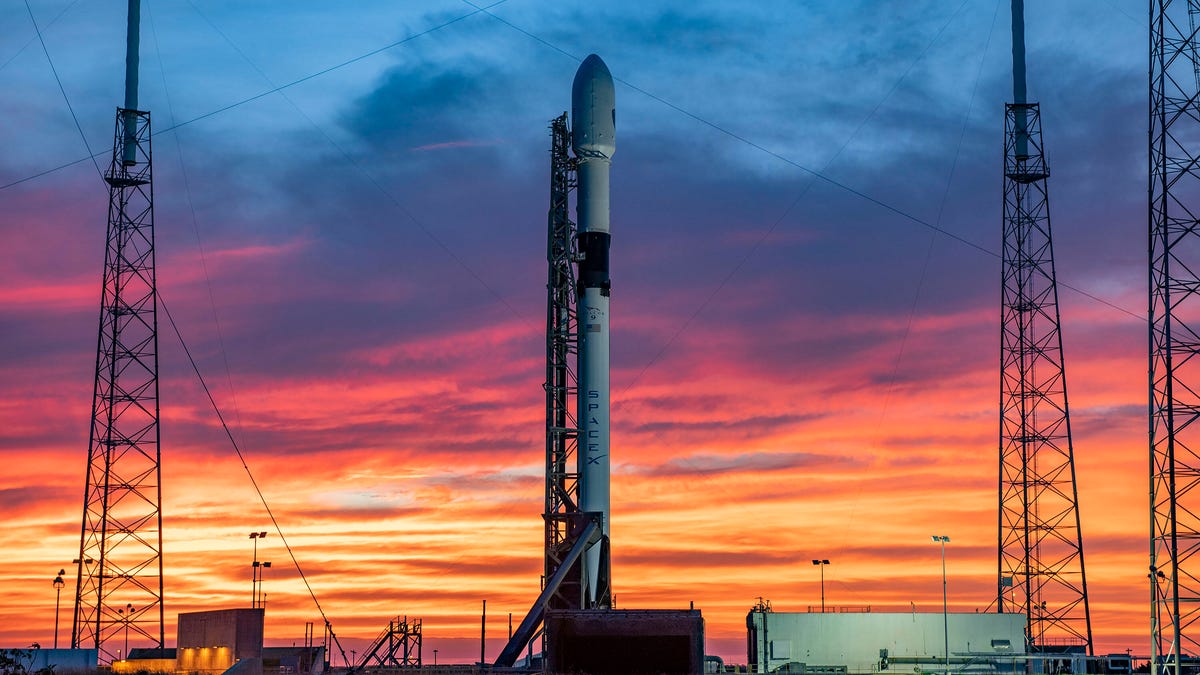How to watch SpaceX launch a GPS satellite for the military in a new first
The US Space Force is modernizing its GPS constellation with the help of Elon Musk's new rocket tech.

SpaceX shared this scenic view of the Falcon 9 that will carry Space Force's GPS satellite into orbit.
The US military is showing a deeper faith in Elon Musk's rocket company and its mission to reuse rockets as much as possible. On Thursday, a previously flown SpaceX Falcon 9 will boost a new Global Positioning System satellite to orbit for the US Space Force.
The mission marks the first time a flight-proven booster has been used for a national security mission. In fact, the Falcon 9 carrying the GPS satellite, nicknamed Neil Armstrong in honor of the famed Apollo astronaut, is the same booster that was used on the last Space Force GPS satellite launch in November.
The Space Force and SpaceX are certainly hoping this mission goes off as well as the last one, which saw a successful launch, deployment and landing.
Neil Armstrong, or GPS III SV05, is the fifth in a series of next-generation GPS satellites built by Lockheed Martin for the US Space Force. The new satellites are designed to be more secure and harder to jam or spoof, according to a statement from the Space Force.
A 15-minute launch window for the mission opens Thursday at 9:09 a.m. PT (12:09 p.m. ET) from launch pad LC-40 at Cape Canaveral Space Force Station in Florida.
The booster is set to return to Earth several minutes after launch, landing on the droneship Just Read The Instructions in the Atlantic Ocean. You can watch the whole thing via the feed below.
Follow CNET's 2021 Space Calendar to stay up to date with all the latest space news this year. You can even add it to your own Google Calendar.

